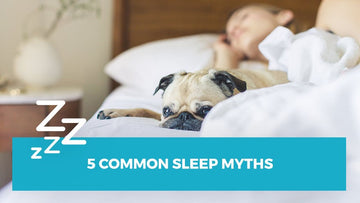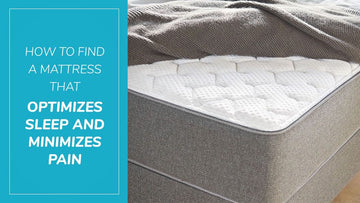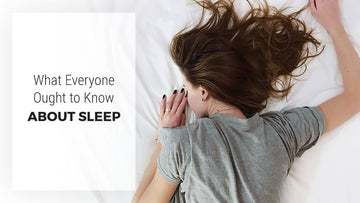5 Common Sleep Myths

5 Common Sleep Myths & Facts — And How They Might Be Sabotaging Your Slumber
There are plenty of sleeping tips and tricks out there that supposedly will help us get better sleep. But did you know that many of these sleeping standbys might actually be preventing you from sleeping better? Let's explore 5 well-intended tips for better sleep that can wind up sabotaging your slumber.
1. You Should Never Nap
After a night of tossing and turning, it can be tempting to take a quick nap — and yet many of us resist the urge. Having a quick nap can restore your energy level so you can get on with your day and also prevent you from having that tired-but-wired feeling when you turn in again for the night. Other benefits of napping include increased creativity, better retention of information and even decreased blood pressure!
2. If You're Not Sleepy, Stay In Bed Anyway
When you're having one of those nights where sleep just won't come, it might seem logical that if you lie there long enough, you'll eventually drift off. This is a mistake. Likely, your restless night is the result of something that's on your mind. Lying awake with nothing to distract you will only keep your mind centered on whatever is bothering you. Instead, get up and do something. Read, watch TV, listen to music, or do some other activity to occupy your mind, and lie down again when you start to feel sleepy.
3. Everyone Needs Exactly 8 Hours of Sleep
Although 8 hours is the general rule of how much sleep an adult should get each night, some people have very different sleep requirements. If you feel great with the usual 8 hours, good — but, if you feel like you're getting too much or not enough sleep, listen to your body. Believe it or not, there are people that need as little as 6 hours of sleep per night and others who need as much as 10.
4. Working Out Before Bed Will Knock You Out
While it's true that working out will help you get better sleep, the timing of your workout matters. Working out too close to your bedtime can give you an energy boost that might take hours to subside. It's best to work out a minimum of 3 hours before bedtime to make sure your workout will help your sleep, rather than hinder it.
5. When You Go To Bed Doesn't Matter
Studies have shown that people who are night-owls have a higher rate of depression, even if they sleep the same amount of hours as someone who goes to bed earlier. Natural daylight is very important for your health, especially your mental health. So, if you tend to stay up way too late and sleep late the next morning, getting on an earlier schedule can make you feel a lot better.
Let Aviya Help You Get Better Sleep
It's not just these common myths that are leading many people to suffer from lack of sleep. Having an old mattress, or one that doesn't suit your preferences, can seriously hinder your sleep quality. That's why Aviya offers only the best luxury mattresses online at a variety of sizes and firmness levels — we understand that being able to sleep well translates into every aspect of your life. Check out our mattresses online and bring one home to put the effects of poor sleep to rest.

